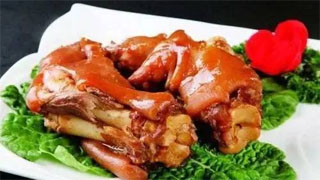
There are three "mouths" in the word "cancer"
It seems to imply a very close relationship between cancer and 'eating'
What is the relationship between cancer and the habit of "entrance"?
Bad habit one: Smoking and drinking alcohol
Tobacco and alcohol are both Class 1 carcinogens.
Tobacco contains thousands of harmful chemicals, among which dozens can directly cause cancer. Smoking is one of the most important risk factors for lung cancer. It also increases the risk of oral and throat cancer, esophageal cancer, gastric cancer, bladder cancer cancer, kidney cancer, breast cancer and other cancers.
Drinking alcohol can also increase the risk of cancer. The World Health Organization has released a cancer monitoring report, stating that "we should pay attention to diet and the role of alcohol in carcinogenesis", warning people that alcohol can cause cancer. Research has shown that long-term alcohol abuse is mainly related to liver cancer, esophageal cancer, gastric cancer, oral cancer, and throat cancer.
Bad habit 2: No pleasure without meat
Eating red meat can increase the risk of developing colorectal cancer.
Red meat refers to meat that appears red before cooking, specifically pork, beef, lamb, deer, rabbit, and most other mammalian meats that are high in saturated fat. Although red meat may increase the risk of cancer, it does not warn people not to eat red meat. The structure of red meat contains a compound containing iron elements - heme iron. Heme iron not only gives red meat a blood red color, but also has a high digestion and utilization rate of iron, making red meat have excellent iron supplementation ability. So, consuming red meat in moderation also has certain benefits for the body.
Smoked, grilled, and cured meat products can produce Class 1 carcinogens such as polycyclic aromatic hydrocarbons during the production process. Long term consumption can increase the risk of cancer and should not be consumed excessively.
Eating too much salt not only increases the risk of hypertension, but a high salt diet can also damage the gastric mucosal barrier and increase the risk of developing stomach cancer. Some people like to eat pickled vegetables, pickles, and salted fish, which are very appetizing to eat, but they are unhealthy. In addition to excessive salt intake, they also contain nitrosamines, which can increase the risk of stomach cancer and other diseases.
Traditional Chinese Medicine believes that the primary function of the spleen and stomach is to digest food and transport dietary substances. If you eat "fat, sweet, and greasy" meat without moderation, it will increase the burden on the spleen and stomach, and easily damage the function of spleen and stomach transportation. Once the spleen and stomach are injured, the digested food essence cannot be transported to the whole body, but instead accumulates in the middle burner to form phlegm, which then damages the five organs and six viscera.
Bad habit three: Eating leftovers
Aflatoxin is a Class 1 carcinogen.
Due to improper storage or prolonged storage, food is prone to mold growth. Expired food containing certain fungi and their metabolites, such as aflatoxin, can reduce nitrate to nitrite and promote the synthesis of nitrosamines. If consumed, it can increase the risk of cancer. Some families have the habit of eating leftovers, which generally contain high levels of nitrite. Long term consumption can also increase the risk of cancer.
Bad Habit 4: Enjoys eating hot food
Hot drinks (consumed) above 65 ℃ are classified as Class 2A carcinogens.
Hot food (above 65 ℃) can easily burn the esophageal mucosa. Once a habit of eating hot food is formed, the esophageal mucosa can be repeatedly damaged, which can develop into chronic esophagitis and ultimately increase the risk of developing esophageal cancer and other diseases.


